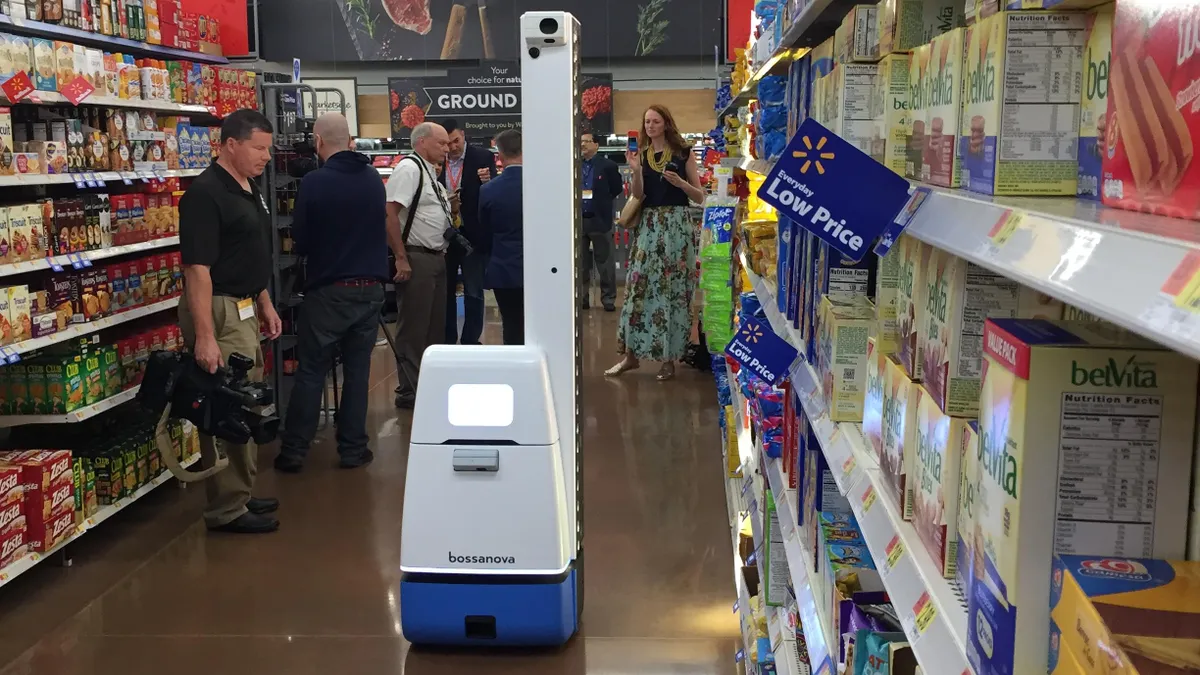Dive Brief:
- Bossa Nova Robotics, a developer of robots designed to scan aisles for out-of-stocks and to measure sales performance, has raised $29 million in new funding. This brings the company's total funding to $70 million. The company said the capital will be used for software research and development, hiring and international expansion.
- "Dozens" of Walmart stores began testing Bossa Nova robots last fall, according to CNBC. Bossa Nova says it's working on customizing its systems to work with a variety of different retailers.
- Co-founder and chief business officer Martin Hitch told CNBC the robots work "three times faster and can be up to twice as accurate as humans." Their presence allows employees to focus on other needs, such as customer service and keeping inventory fresh, he added.
Dive Insight:
Walmart hasn't disclosed whether or not Bossa Nova's aisle-scanning helpers are saving it money. But the company has expanded the robots to additional stores, which is a good indication they're benefiting the retailer.
Further, Walmart's VP of innovation, John Crecelius, told Business Insider that the company is "very excited and very motivated" by the technology's performance, which perhaps explains why investors are making a big bet — $70 million worth in this case. This latest round of funding should accelerate the rollout of Bossa Nova's robots to other retailers, and — with its sights trained on R&D — it could even facilitate new capabilities outside of aisle scanning and data collection.
Bossa Nova isn't the only robot to make its way down the grocery aisles. For example, Schnucks Markets has Tally, created by Simbe Robotics, while Food Lion has deployed Marty. Like Bossa Nova's technology, these "assistants" also sweep the aisles to identify out-of-stock items, a key advantage for grocers, especially during peak hours.
Companies deploying robot technology have noted that it is not intended to replace human workers, but rather complement the work they're doing and boost the customer experience in the process. Such promises may be hard to fulfill, as automation by its very nature cuts down on labor costs. Last year, well before this latest round of funding, Forrester released a report anticipating that robots will eliminate 6% of all U.S. jobs by 2021.
Of course, some retailers' pockets are deeper than others, and this type of technology is still out of reach for many companies at this point. But its efficiencies may prove too valuable to ignore, as evidenced by some independent grocers — like Bell's Food Store in Athens, Georgia — testing similar technology.
Independents can't expect to keep pace with national players, but by carefully weighing the cost and benefit of these advancements, these automated processes can help them save money. They may even help them win over more consumers, who have noted that they want their grocers to be more tech-savvy and they want their shopping trips to be more efficient.
















